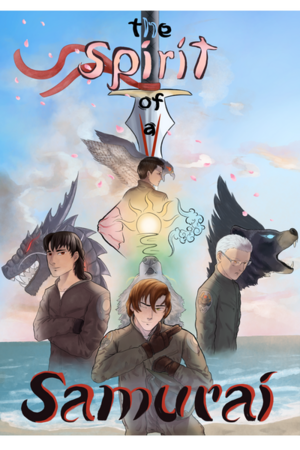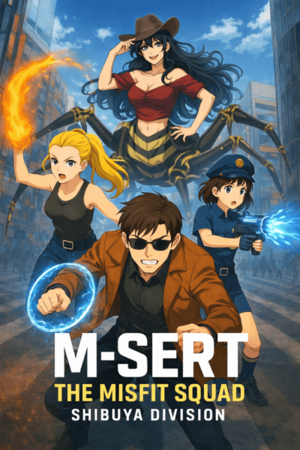Chapter 2:
Prologue 1: History
Flight of The Blackbird
In 2035, Earth was hit by a massive meteor; One that quite literally shook the entire planet to its core. It landed in the Atlantic Ocean with so much force that the Continents (specifically North America and South America) were sent hurtling into Asia. Alaska was annihilated when it smashed into Russia, and Japan got caught between the Americas and China. Most of Western Europe was obliterated as well, and Africa was spun about eighty degrees and crashed into Asia, crushing most of India. All of these countries’ land fused together to form a supercontinent, Novopangea. This unprecedented disaster was formally named The Fall, and when the dust finally settled, it was the single most deadly natural disaster in human history. Over 2 billion people lost their lives, and forty percent of the world’s structures had been decimated. The entirety of the world that had survived was in a state of utter shock. Immediately after The Fall, humans did as humans do; They fought with each other, ransacked each other, and panicked. It was only after the rise of one man that humanity’s fear and anger was quelled.
An American survivor with Korean ancestors, Sung Chi-Wong, had no idea where to start, like most of the remains of humanity, but he knew one thing for sure: mankind needed to be united to ever accomplish something. And so, he did just that. By using every type of social media out there, he quickly built himself a following of a few million people. That few million continued growing, and so he began to start having public rallies.
“We must unite!” he would say. He said it over and over until world leaders began to notice the ever-growing movement of people just wanting their homes back. After a large bout of political infighting, the United Nations decided on a solution five years after The Fall, on January 1st that they called the World Act.
The announcement of the World Act went as follows:
“First, for as long as it takes to rebuild the world after this devastating event, each and every United Nations member-country’s borders will be abolished. Secondly, fifty percent of every able-bodied man and woman will be required to get a job as either a construction worker or scientist. We would like to have humanity as a whole focus on rebuilding. Thirdly, every UN country will use the same currency, called the Tendar. Every person’s bank account will be appropriately compensated for this change. Fourth and finally, a new calendar will be instituted following this cataclysmic event. The AF calendar, or After Fall, will begin. This year is year 1 AF. We at the United Nations know that this may seem unfair, but it’s for the good of humanity.”
Naturally, there were two sides of public opinion on this matter. A surprisingly large majority of people found that this was a good idea. The world needed rebuilding, and nothing was going to happen if people didn’t start getting up and doing things themselves. These people were called Supporters. On the other hand, however, there were a number of people who felt that this “greater good of humanity” that the United Nations was striving for wasn’t worth their life. They thought of the requirements as an infringement upon their lives and their freedoms. They were called Deviators. There was another long period of fighting, both online and in person, before people gradually began to fall into routine. The Deviators began to realize that, while it may not be ideal, the world had been devastated. They needed to step up and fix it, or nothing would change.
Days turned into weeks, months turned into years, and suddenly, nearly a century had passed. The Deviators still had small groups protesting up until the end of the rebuilding era, but their protests weren’t large enough to make any real change. Sung Chi-Won had long since died, but he died happy, knowing that he contributed a large portion to the rebuilding of the world. Thanks in part to him, our world was a completely different place now. Things that had been thought to be nothing but science-fiction were now a reality. Flying (well, hovering) cars, aptly named Hover-cars, were now the primary mode of transportation. Robotic modifications for the human body now not only existed, but were widely used by the general public, including lighters embedded into fingers, a holokey in the wrist to open doors, and other conveniences. Space travel and exploration could now be accomplished by nearly anyone with a brain and all their limbs (and maybe even a few fake ones). Science was progressing, the world was expanding, and things were getting better for all of humanity.
And just like that, it was over. Ninety-nine percent of the world had been rebuilt, and there were even new places now. Among these new places was the first new metropolitan area in the world, Genesis. Genesis is a 2,500 km2 city between the former Japanese and American areas of the supercontinent named after the first book in the Bible. It has a population of fifty-million people, easily making it the largest city in the world. In fact, it is so large that it became its own country in 85 AF.
In 100 AF, the world returned to a new normal. Country borders were reinstated, jobs became open once again, people began to focus more on starting families, the world (aside from the obvious technological advancements) had reverted back to what it was before The Fall. Unfortunately, because of the nonexistent borders, most police forces were weakened from being stretched so thin. This caused the crime rate in most places, Genesis specifically, to rise drastically. During the time before borders, the most pressing problem was the ease with which stolen goods, contraband, and trafficked people could be sent from place to place. The idea of checkpoints between each country was introduced, but never was put into practice, as it violated some part of the much longer treaty that every country in the UN signed.
As a result of the ending reconstruction era, family life had a spike in popularity. Because of this, many children were born. Among those children was a young boy born to two wonderful parents in Genesis. This little boy, named Reiji, has one hell of a life ahead of him. I should know, because this little boy is me.




Please sign in to leave a comment.